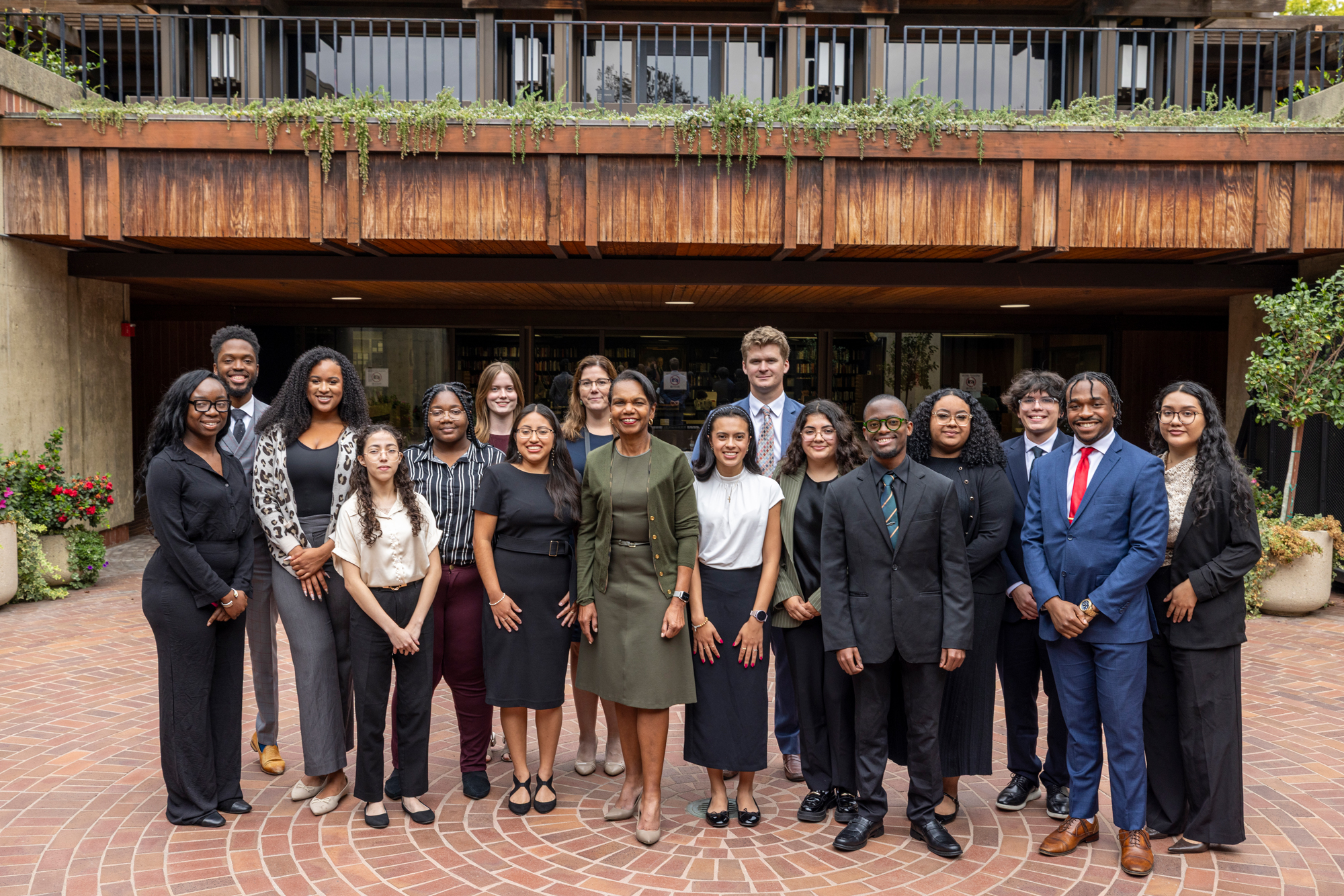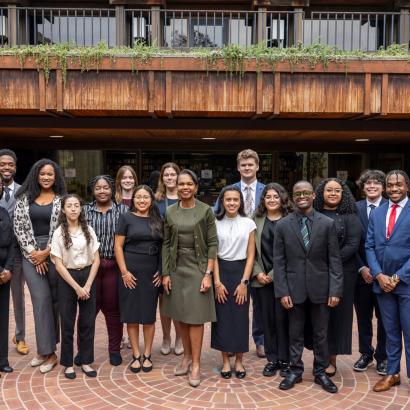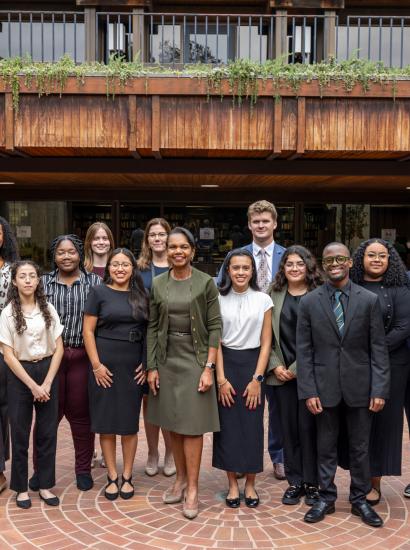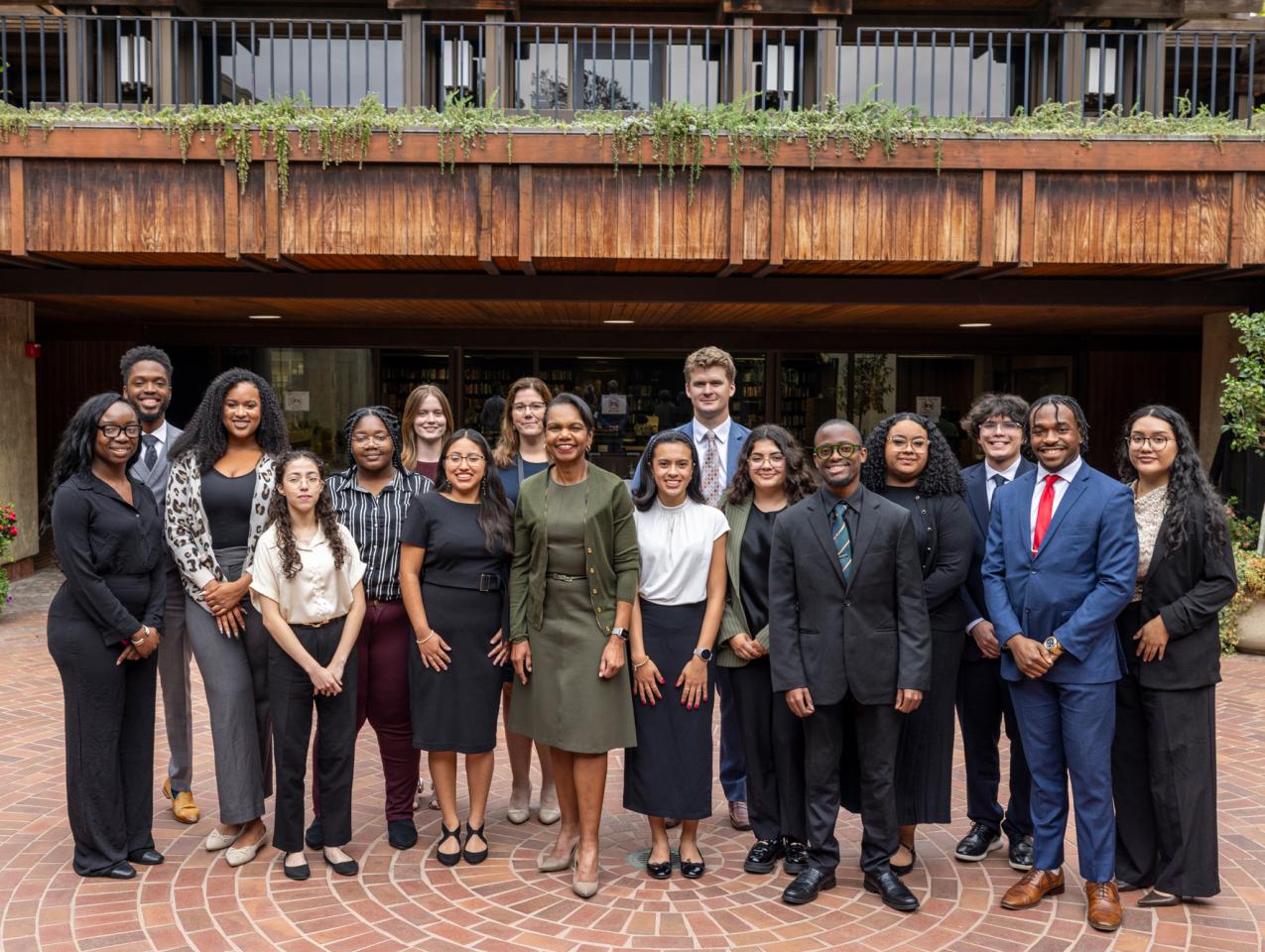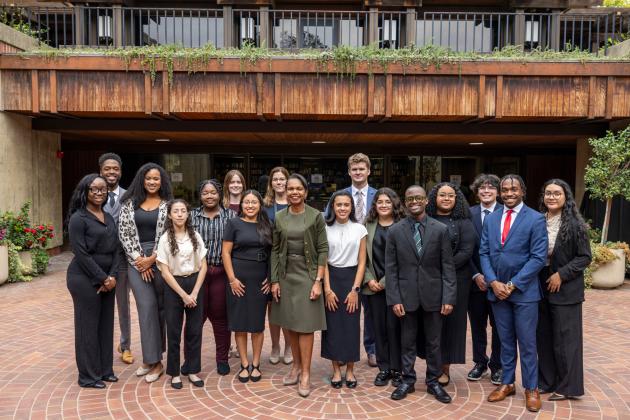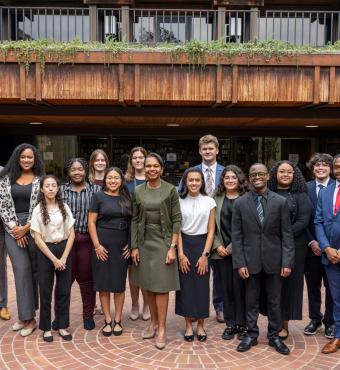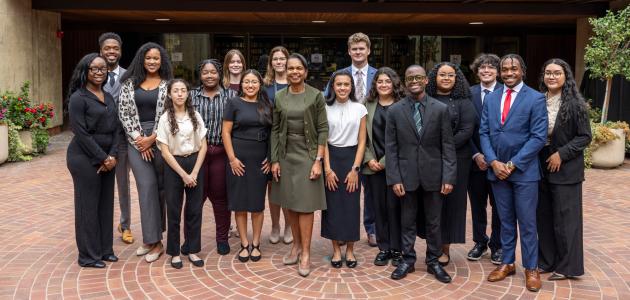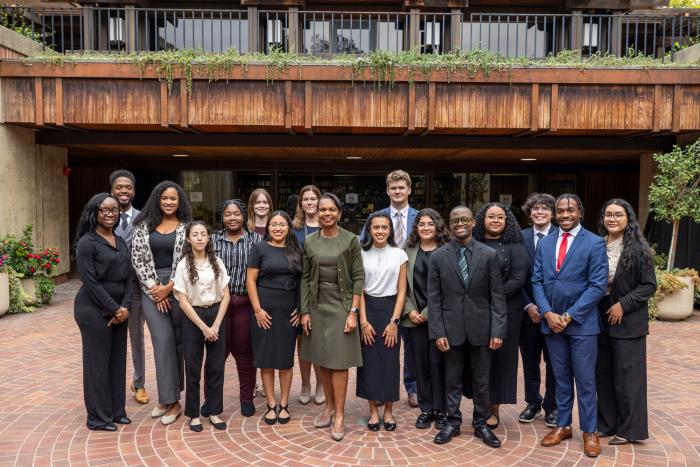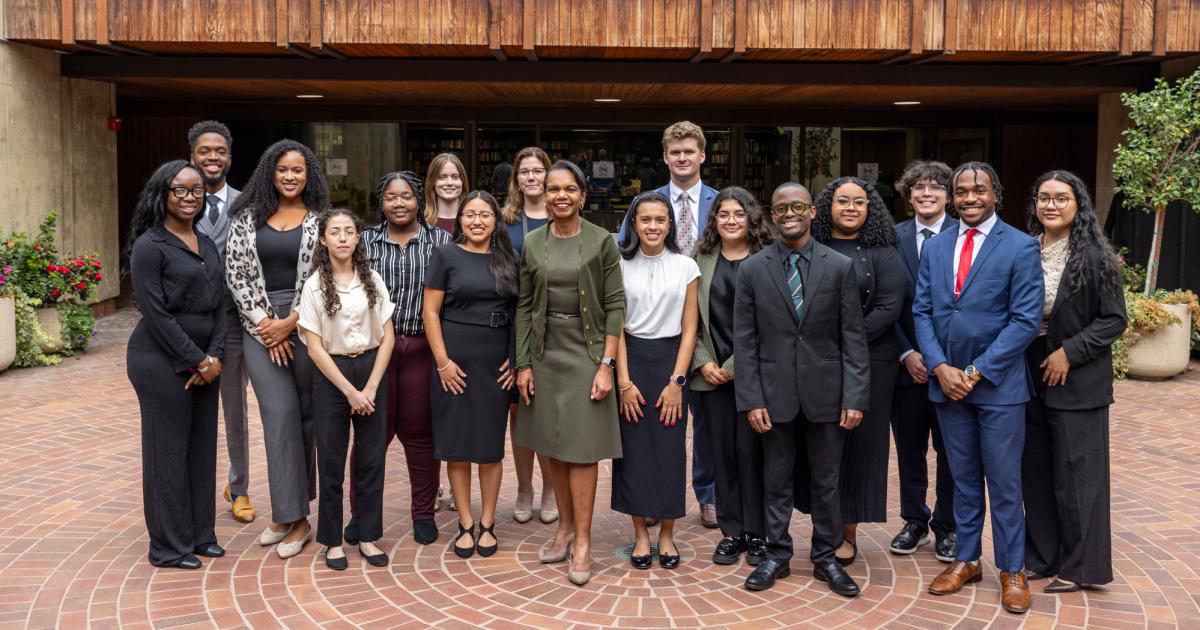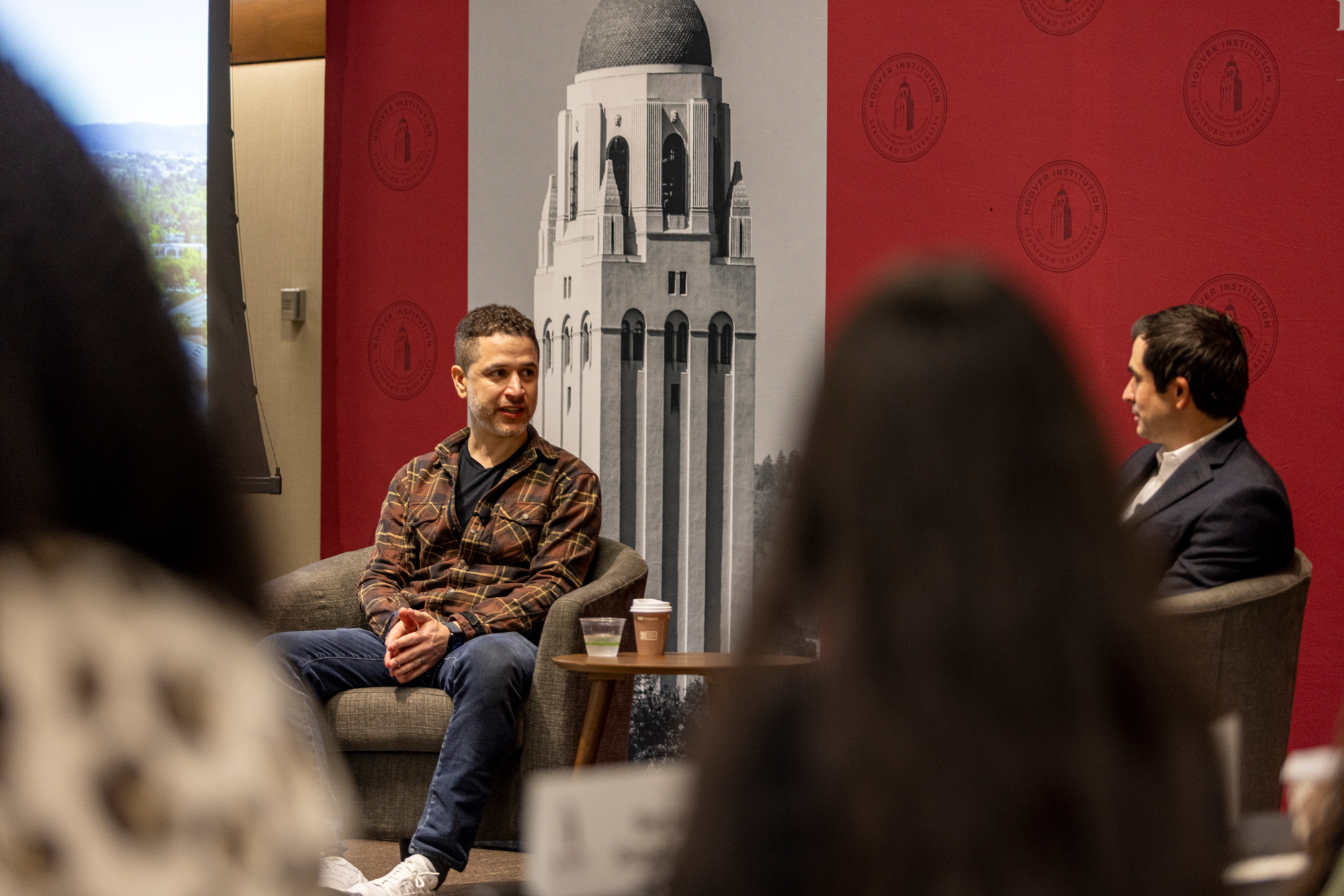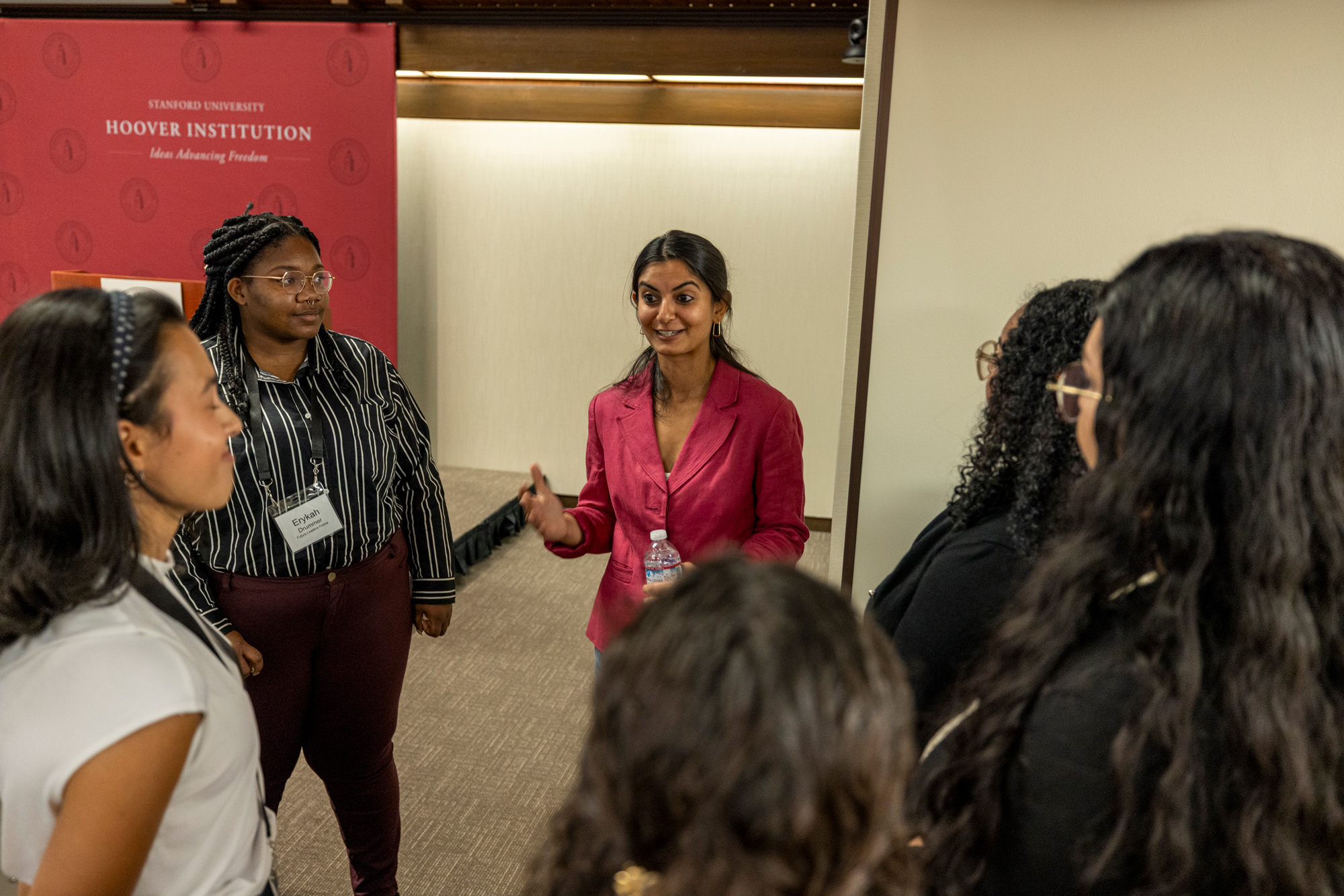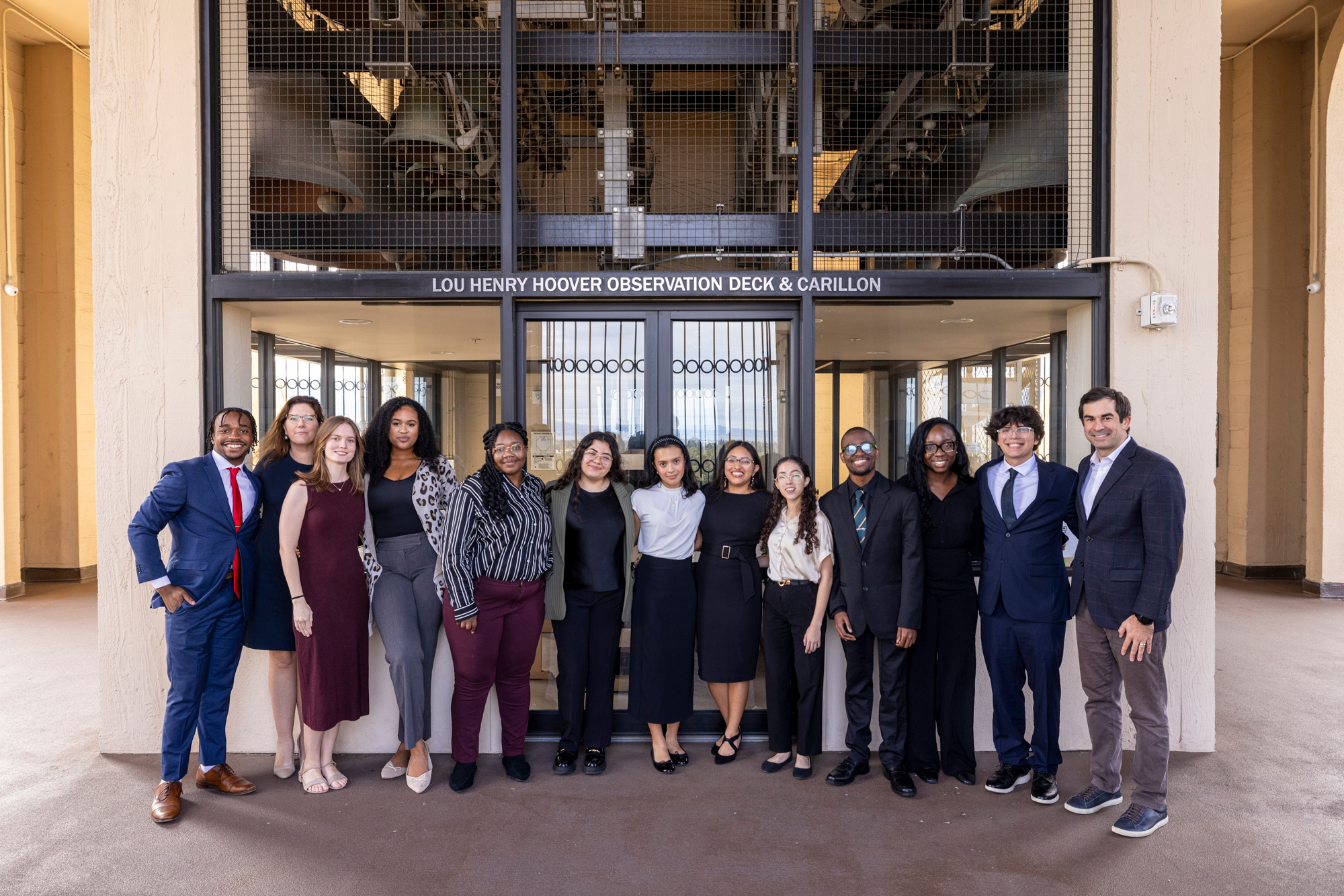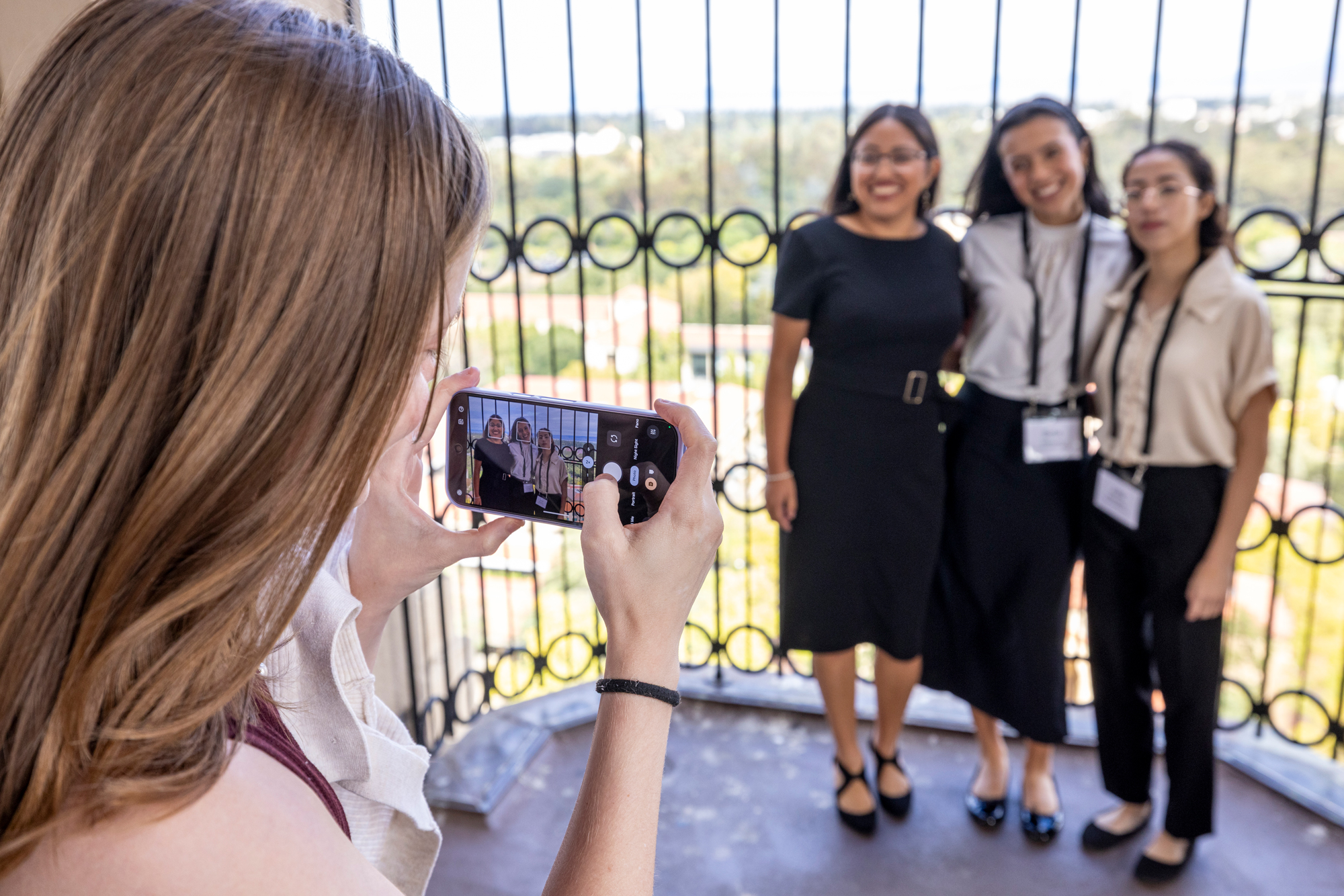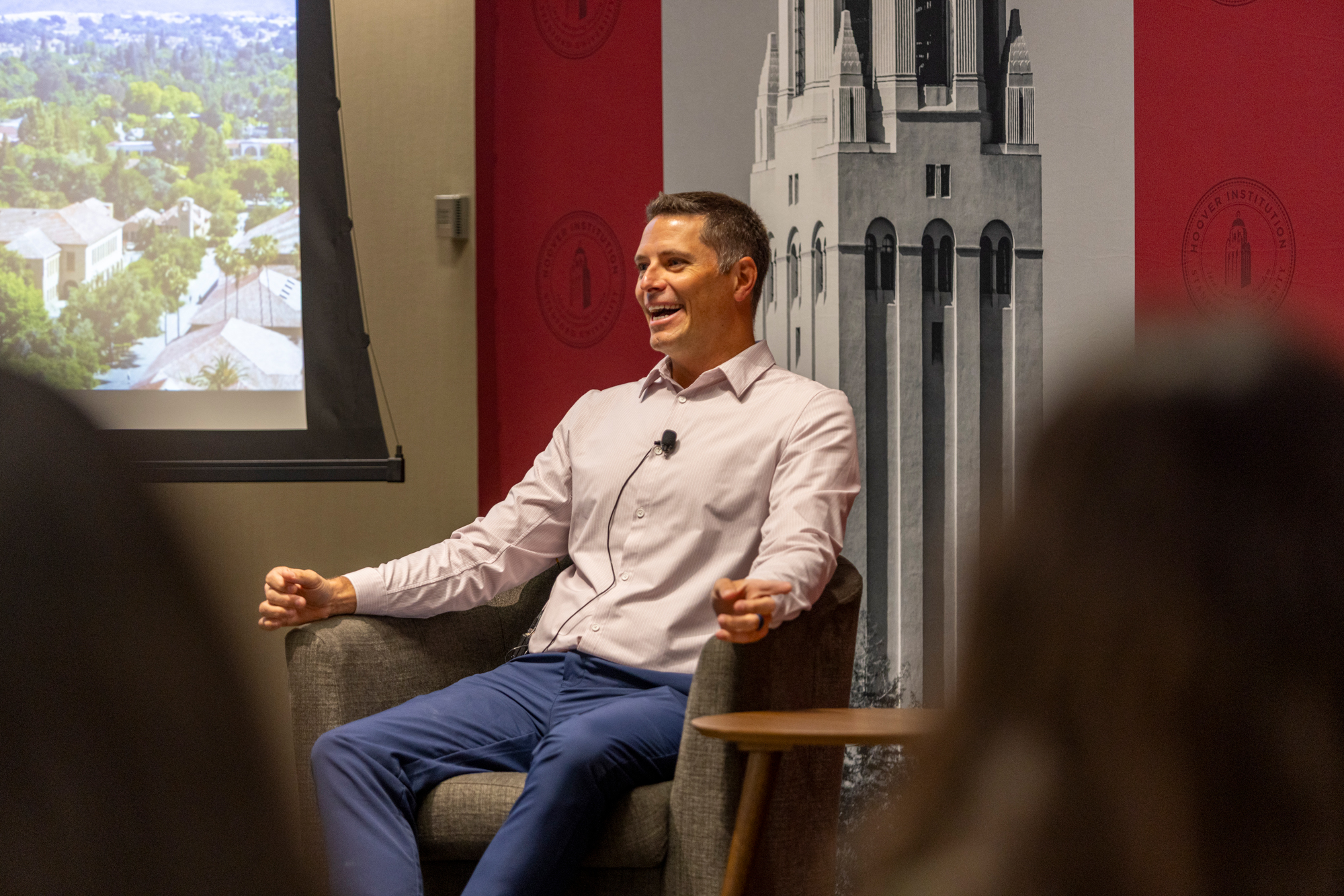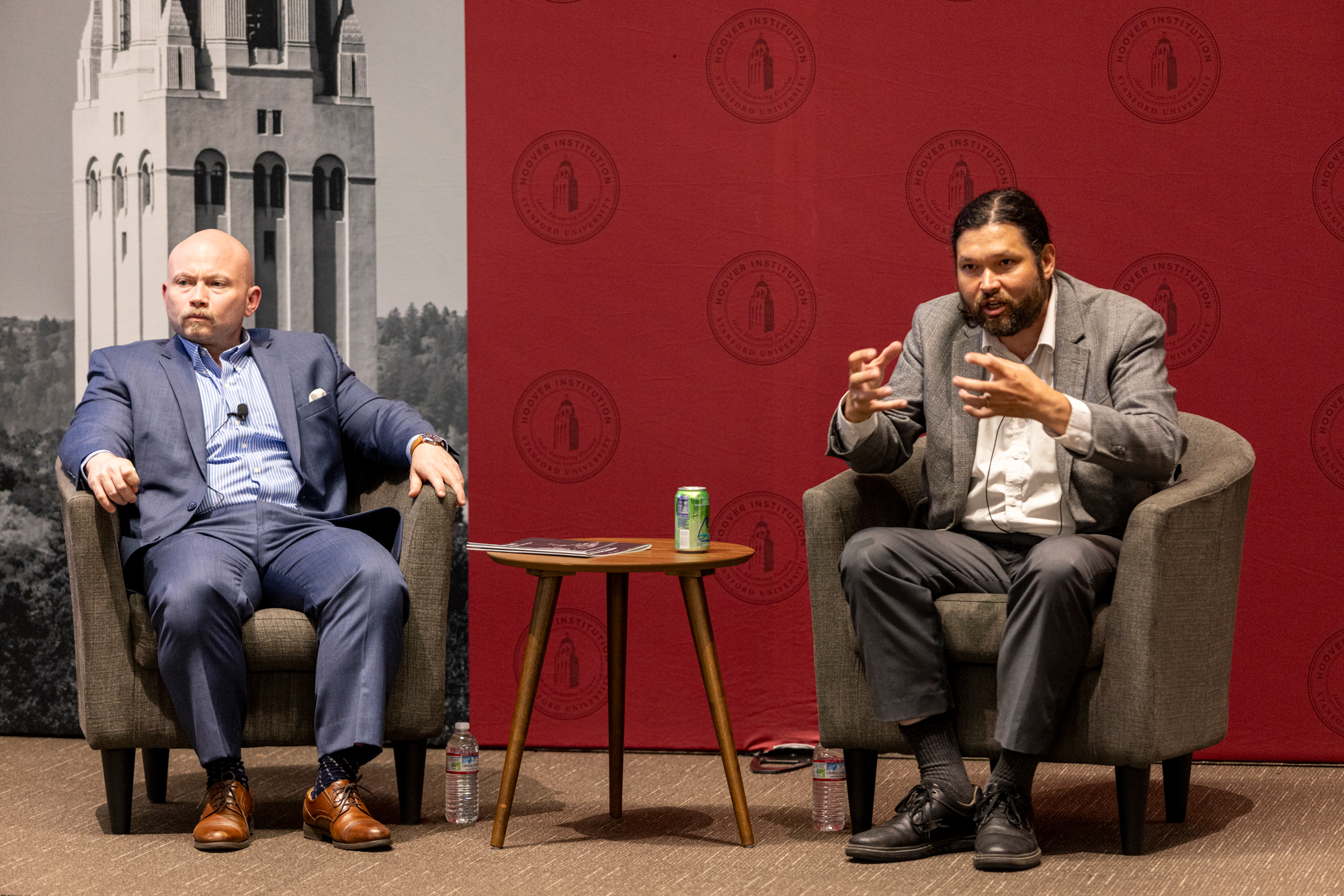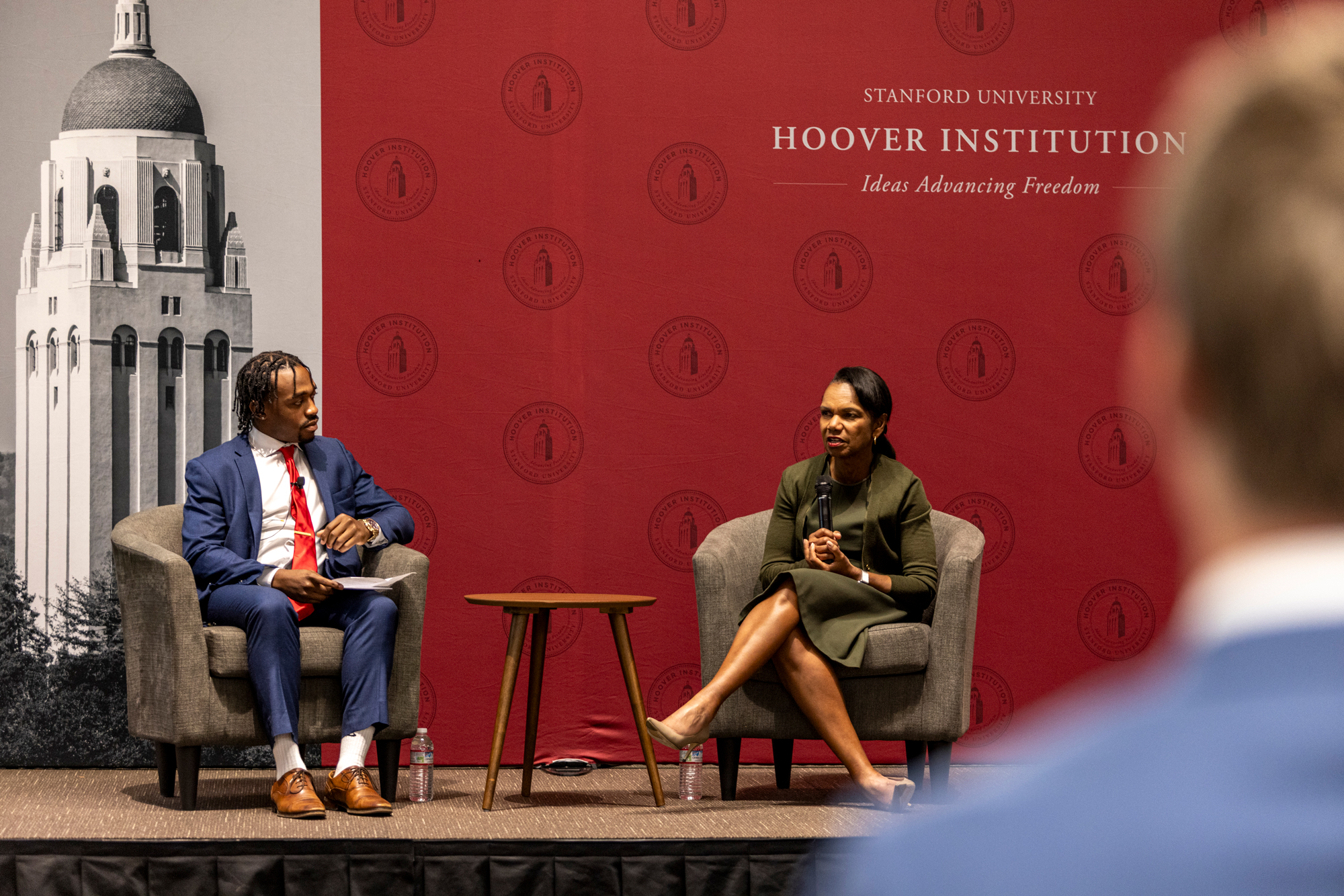Hoover Institution (Stanford, CA)—A group of students who demonstrate how school choice propels pupils to dream bigger got to hear from an all-star lineup of distinguished speakers at Hoover this October.
The ten students spoke to Hoover fellows, a successful start-up cofounder, a Space Force officer, and Director Condoleezza Rice herself about pathways to career excellence, the experiences, traits, and skills learned outside the classroom that prepare young people for success.
The American Federation for Children Growth Fund (AFCGF) is a nonprofit education organization that empowers families with educational freedom.
Its fellowship program offers a year-long mentorship and leadership opportunity to US pupils who completed K–12 education through a publicly funded school choice program or have received a private school choice scholarship.
The fellows themselves remarked at the depth and breadth of expertise on offer at the Hoover Institution.
“Our trip to the Hoover Institution was a highlight, especially the ability to hear each speaker bring in such a wide range of knowledge from different fields,” said AFC Fellow Betsy Sandoval of Iowa. “Their diverse perspectives offered beautiful insights into various areas, from the Space Force to India.”
The first discussion of the day featured Joseph Walla, cofounder of HelloSign, talking with Hoover’s Chase Koontz about how his company came to be, what it’s like to be a cofounder, and common misconceptions about startups, leadership, and Silicon Valley.
He and his cofounder sold HelloSign to Dropbox in 2019 for $230 million.
Some of the AFC fellows asked him about what the process of acquisition was like, how challenging it was to lead a dozen and then a hundred employees, and what is next for him.
Next, Hoover Fellow Suhani Jalota spoke to the fellows about her nonprofit, the Myna Mahila Foundation, which is a research-driven social enterprise with the mission to increase women’s agency and decision-making power to make them more confident, financially independent, and healthy.
The genesis of her foundation was the observation she made that for large portions of the female population of India, very reasonable dreams for women in many other places of the world—like attending university, learning a profession, or even finishing high school—seemed far too distant.
At an even more fundamental level, Jalota’s organization works on issues of health, sanitation, and dignity, including installing sewers to allow indoor plumbing in rural areas and helping women become comfortable with ordinary facts of life such as menstruation.
Moving from women’s empowerment in the Global South to matters of national defense and the cosmos, newly arrived National Security Affairs Fellow Lt. Col. Patrick Gaynor of the US Space Force spoke to the fellows about his own path into the US Air Force, and how his focus moved to the space domain over time.
He worked signals intelligence at the National Security Agency headquarters in Fort Meade, Maryland, and happened to be on duty the night Edward Snowden began leaking details about sensitive US intelligence collection methods and programs to US and global journalists.
He said that at each part of his career, he happened to be at the “forefront of something important for the nation.”
He joked he is like the “Forrest Gump” of the Space Force, as events of national significance just kept falling into his path, similar to Tom Hanks’s character in the 1994 film.
He told the fellows a major challenge in space today involves the United States developing methods to counter other nations who are building satellites that can interfere with or destroy its vast array of GPS and spy satellites.
Moving from space to the study of the past, Hoover Institution Fellows Joseph Ledford and Anthony Gregory spoke to the fellows about their own paths and why they chose to study history.
They both spoke about how history allows them to challenge assumptions about events of the past and how the enormous collection of documents and artifacts at Hoover’s Library & Archives supports them in their mission.
Ledford also told the attendees about the curious phenomenon of how national morale has appeared low at many of the significant anniversaries of the nation’s founding.
He spoke of the inflation, unemployment woes, and general feelings of uncertainty Americans felt at the 200th anniversary of the nation in 1976 and also how a similar low point happened to coincide with the 100th anniversary of America’s founding in 1876 as Reconstruction fell apart and candidates disputed the results of a presidential election.
For the final discussion of the day, Student Fellow Tyreke Farquharson of Ohio got to interview Director Rice about her upbringing, her time in the White House, and her hopes for America’s future.
She told Farquharson about how confidence is earned with preparation and focus.
“You have to have confidence to deal with whatever situation you’re in,” she told the students. “You walk into the room, and you own it, but you have to prepare for it. It can’t be a phony sense of confidence. You enter that room knowing that you’ve worked harder than anyone else in that room, that you deserve to own that room.”
She told the students that fitting in can be a two-way street, and it can help to find common ground with new colleagues instead of “waiting to fit in.”
Looking at the group of fellows, Rice said they embody the promise of school choice, something that gives ordinary US households options only previously enjoyed by the very wealthy.
“This to me is a civil rights issue,” Rice said of school choice. “You are the best advocates because you show what school choice can produce.”
For his part, Farquharson said he reveled in the chance to interview a former US Secretary of State he grew up watching on television.
“It was an experience I’ll never forget and one that deepened my appreciation for the [Hoover] Institution’s mission and legacy.”







